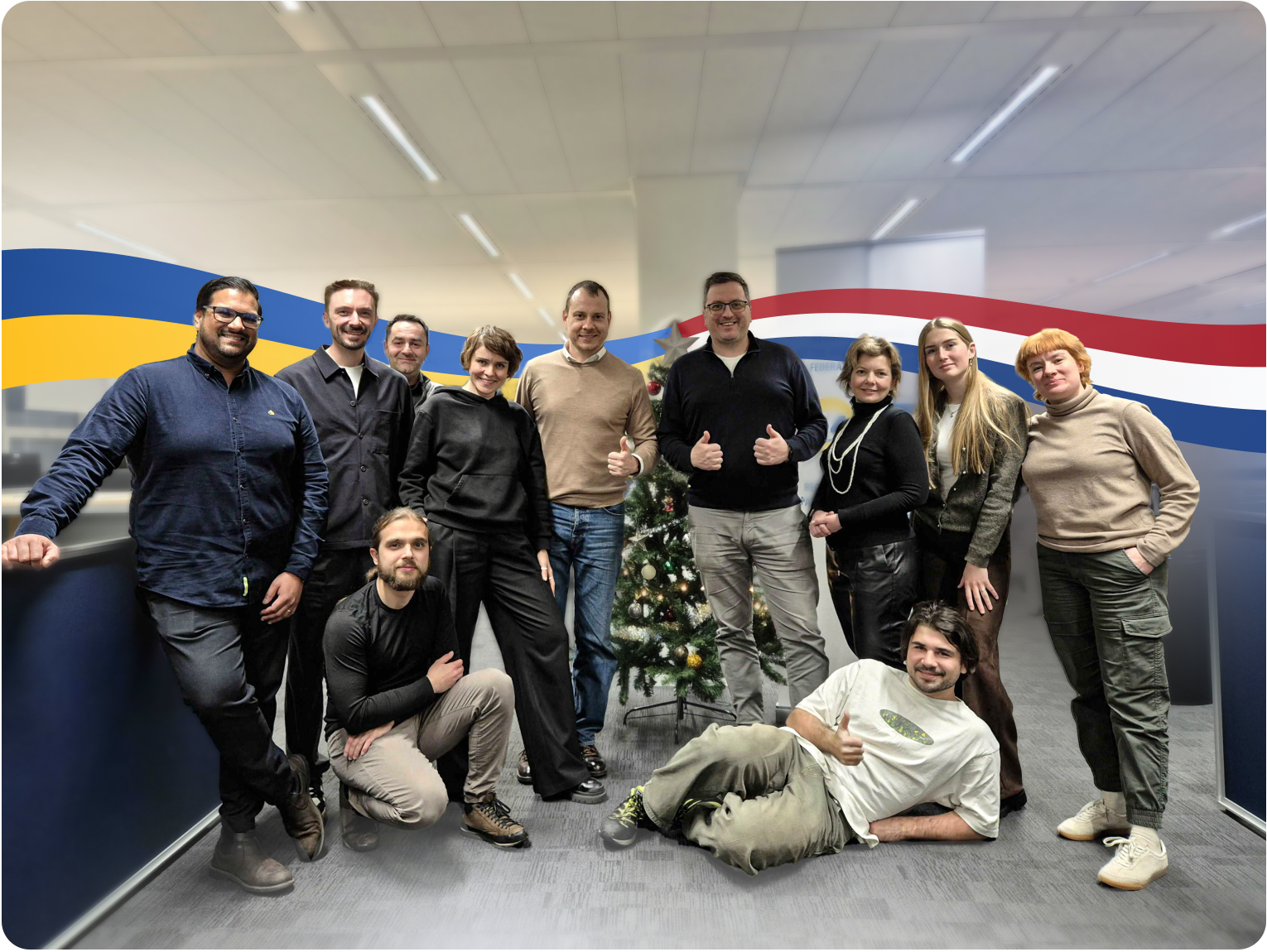On January 6-7, the Kitsoft team met with partners from the Register of Damage caused by the aggression of the russian federation against Ukraine (RD4U). During the meeting, they discussed the development of digital mechanisms to ensure that every Ukrainian affected by the war can report their losses to the international community and receive compensation.
The Council of Europe established the Register of Damage in the Hague to document the true scale of damage caused by russian aggression. The data collected will serve as the foundation for reparations and the launch of a compensation mechanism.
Ukrainians can submit applications to the International Register of Damage via Diia. Kitsoft is responsible for developing the digital tools to make this possible.
Kitsoft was represented in the Hague by CEO Oleksandr Iefremov, Head of the Business Analysis Department Maria Iefremova, and Business Analyst Mariia Reipolska. During the meeting with partners, they summarized the work accomplished over the past year, conducted a retrospective of the workflow, and discussed ways to optimize and accelerate the process.
 Image: Kitsoft team with partners from RD4U.
Image: Kitsoft team with partners from RD4U.
Currently, applications to the Register of Damage via Diia can be submitted by owners of damaged or destroyed housing and families who have lost a close relative due to russia's full-scale invasion of Ukraine.
Together with partners, Kitsoft is working on expanding the online service to allow submissions in categories such as:
- Damage to life and health;
- Torture, imprisonment, and sexual violence;
- Forced displacement (within Ukraine and abroad);
- Other damages and losses.
The Register of Damage is expected to include over 40 categories of reported harm.
How to submit an application to the International Register of Damage?
On the Diia portal, select «Reparations: International Register of Damage».
Choose the category of damage incurred.
Fill out the online application and provide evidence.
You can submit an application to the International Register of Damage even if you have already received compensation through the eRecovery program.
The Register Council will review your application and decide whether it qualifies for inclusion in the International Register of Damage. Applicants will be informed of the decision via Diia.
The Register's Compensation Commission will subsequently develop a mechanism for restitution funded by the aggressor and arrange compensation payments.
The International Register of Damage aims to reveal the true scope of the aggressor's crimes to the world and lay the foundation for reparations.
This service in Diia and the requirements for developing the International Register were implemented in collaboration with the Ministry of Digital Transformation and the Ministry of Justice, with support from the USAID/UK aid project “Transparency and Accountability in Public Administration and Services/TAPAS.”